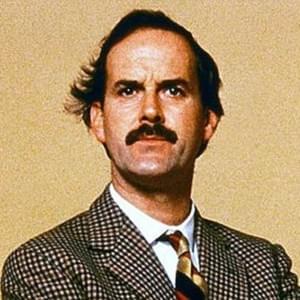
Lecture On Creativity John Cleese
На этой странице вы найдете полный текст песни "Lecture On Creativity" от John Cleese. Lyrxo предлагает вам самый полный и точный текст этой композиции без лишних отвлекающих факторов. Узнайте все куплеты и припев, чтобы лучше понять любимую песню и насладиться ею в полной мере. Идеально для фанатов и всех, кто ценит качественную музыку.

You know, when Video Arts asked me if I'd like to talk about creativity I said "no problem!" No problem! Because telling people how to be creative is easy, it's only being it that's difficult.
I knew it would be particularly easy for me because I've spent the last 25 years watching how various creative people produce their stuff, and being fascinating to see if I could figure out what makes folk, including me, more creative.
What is more, a couple of years ago I got very excited because a friend of mine who runs the psychology department at Sussex University, Brian Bates, showed me some research on creativity done at Berkley in the 70s by a brilliant psychologist called Donald MacKinnon which seemed to confirm in the most impressively scientific way all the vague observations and intuitions that I'd had over the years.
The prospect of settling down for quite serious study of creativity for the purpose of tonight's gossip was delightful. Having spent several weeks on it, I can state categorically that what I have to tell you tonight about how you can all become more creative is a complete waste of time.
So I think it would be much better if I just told jokes instead.
You know the lightbulb jokes? How many Poles does it take to screw in a lightbulb? One to hold the bulb, four to turn the table. How many folksingers does it take to change a lightbulb? Answer: five, one to change the bulb and four to sing about how much better the old one was. How many socialists does it take to change a lightbulb? Answer: We're not going to change it, we think it works. How many creative art--
The reason why it is futile for me to talk about creativity is that it simply cannot be explained, it's like Mozart's music or Van Gogh's painting or Saddam Hussein's propaganda. It is literally inexplicable.
Freud, who analyzed practically everything else, repeatedly denied that psychoanalysis could shed any light whatsoever on the mysteries of creativity.
And Brian Bates wrote to me recently "Most of the best research on creativity was done in the 60s and 70s with a quite dramatic drop-off in quantity after then," largely, I suspect because researchers began to feel that they had reached the limits of what science could discover about it.
In fact, the only thing from the research that I could tell you about how to be creative is the sort of childhood that you should have had, which is of limited help to you at this point in your lives.
However there is one negative thing that I can say, and it's "negative" because it is easier to say what creativity isn't.
A bit like the sculptor who when asked how he had sculpted a very fine elephant, explained that he'd taken a big block of marble and then knocked away all the bits that didn't look like an elephant.
Now here's the negative thing: Creativity is not a talent. It is not a talent, it is a way of operating.
Комментарии (0)
Минимальная длина комментария — 50 символов.












